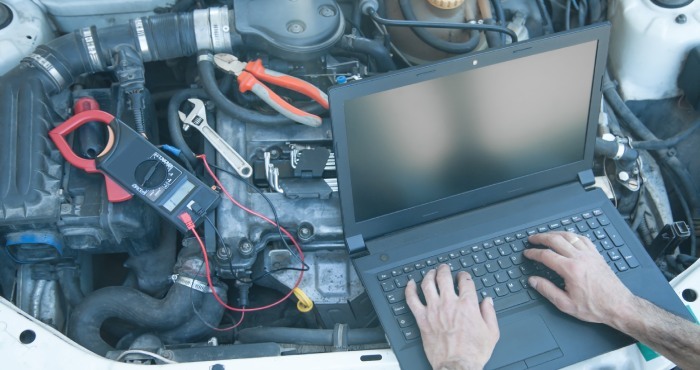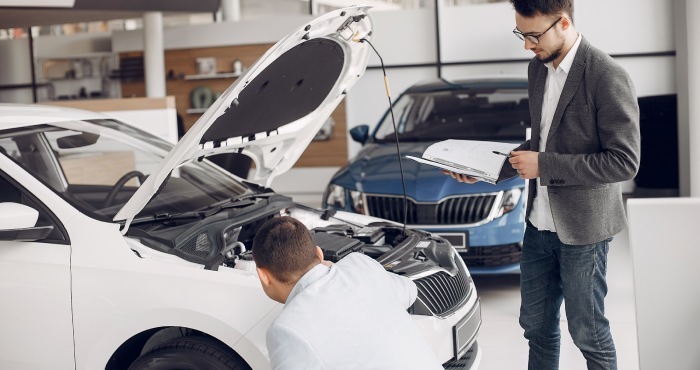California Car Recall Lawyers
When facing the challenges and possible dangers associated with a vehicle recall, it’s crucial to be aware of your rights and available legal avenues. Since 1987, McMillan Law Group has been assisting consumers in California with their car recall issues. Our knowledgeable California lemon law attorneys focus on various lemon law services, offering assistance for vehicle recalls, warranty violations, and Certified Pre-owned (CPO) lemon cases.
Discover the distinctions between vehicle recalls and lemon laws below, along with how our team is ready to help you!
How Are Recalls Different from Lemons?
Although both recalls and lemon law cases pertain to defects in vehicles, they are quite distinct in their characteristics, seriousness, and the methods used to resolve them. Let’s examine the main differences.
Recalls:
Recalls are typically announced when safety-related issues are detected by either the National Highway Traffic Safety Administration (NHTSA) or the vehicle’s manufacturer. Such defects can present serious dangers to both drivers and passengers. By law, manufacturers must address these issues without charging the vehicle owner, usually through repairs, replacements, or occasionally offering a buyback option.
Lemon Cars:
A lemon car is a term used for a vehicle that has a major flaw affecting its safety, worth, or functionality, and this issue persists despite numerous attempts to fix it. Lemon laws are applicable when several repair efforts fail, and these situations are not confined solely to safety concerns, unlike recalls.
The key distinction lies in the fact that a recall is typically started by the manufacturer or the NHTSA, whereas a lemon car is identified based on consumer discontent following unsuccessful repairs. It’s important to highlight that not every vehicle involved in a recall meets the criteria for being classified as a lemon, and the reverse is also true. Nonetheless, both situations can lead to significant annoyance for consumers.
Why Are Cars Recalled?
Manufacturers initiate vehicle recalls when they identify flaws in design or production that may jeopardize the safety or functionality of a vehicle. While certain defects pose a greater threat than others, the primary goal of all recalls is to resolve problems that could endanger drivers, passengers, and pedestrians alike.
Since vehicle recall legislation was established in 1966, approximately 390 million cars have been recalled for a range of issues. Some frequent defects are:
- Defective airbags, such as those involved in the infamous Takata recalls
- Problems with the transmission that compromise safe gear shifting
- Potential engine fires stemming from fuel leaks or overheating
- Dangerous surges in acceleration that may lead to unintentional speeding
- Malfunctions in the electrical system, including failures in electronic push-start mechanisms.
Vehicle recalls can impact all types of cars, ranging from budget-friendly options to high-end brands like BMW, Mercedes-Benz, and Lexus. The extent of a recall may differ significantly, involving anywhere from several hundred to millions of cars globally.
How the Recall Process Works:
When a safety issue is identified, either by the manufacturer or as a result of NHTSA inquiries (which are frequently initiated by consumer feedback), the manufacturer must formally announce a recall. This announcement must be provided in writing to all registered owners of the impacted vehicle(s). Typically, the recall notice will include the following details:
- Details about the flaw and its associated hazards.
- Possible indicators that suggest the presence of the flaw. G
- Guidance on how to resolve the issue, usually by visiting an authorized dealership or service facility.
During the recall process, the manufacturer is required to address the problem without charging the customer. If the issue cannot be resolved, they may provide a replacement vehicle or buy back the car instead.
What Happens Once a Recall Is Issued?
Upon the announcement of a recall, it is essential for the manufacturer to quickly inform vehicle owners and provide clear instructions on how to address the identified issue. Here’s what transpires following the official recall declaration:
Notification to Owners
The manufacturer of the vehicle must inform every registered owner about the recall through a written notice. This communication will detail the defect, outline the associated risks, and offer guidance on how to address the problem, including information on where to take the vehicle for assessment and repairs, which may involve visiting an authorized repair facility or dealership.
Cost-Free Repairs
The producer is required by law to address the defect without charging the vehicle owner. This obligation encompasses repairs, replacements, or, in some instances, buying back the vehicle if the problem cannot be fixed.
Repair Timeframe
Repairs can typically be finished in a matter of days or weeks, based on the nature of the defect. Nonetheless, certain situations may arise where delays occur due to either the complexity of the repair or the unavailability of parts. If the repair extends beyond a reasonable timeframe, the manufacturer may provide alternative transportation solutions while you wait for your item to be fixed.
Addressing Additional Issues
Should the vehicle show additional unrelated issues that are not included in the recall, owners will have to resolve those problems on their own. The recall pertains solely to the particular concern that prompted the alert.
It’s crucial to understand that just because a vehicle has been recalled doesn’t mean it qualifies as a lemon. Nevertheless, if the issue continues even after the manufacturer tries to fix it, or if new significant problems occur, you could still pursue compensation through California’s lemon law.
What Is a Lemon Car?
A lemon car refers to a vehicle that has a significant flaw affecting its safety, worth, or performance. Even after several repair attempts, the manufacturer has not succeeded in fixing the problem. In California, the Lemon Law—officially called the Song-Beverly Consumer Warranty Act—safeguards consumers who buy or lease cars that do not satisfy established quality and performance criteria.
Criteria for Lemon Law Claims
For a vehicle to be classified as a lemon according to California legislation, it must fulfill these specific requirements:
- Major Defect: The flaw should have a considerable impact on the vehicle’s safety, performance, or worth.
- Adequate Repair Opportunities: The manufacturer or an approved dealer must have been provided with a fair number of chances to rectify the issue (generally two or more attempts for safety-related problems, or four or more for less critical defects).
- Persistent Problems: The issue persists even after repair efforts, or the car has been inoperative for a prolonged duration, typically 30 days or longer, due to repairs.
Should your vehicle fulfill these requirements, you could qualify for a refund or a replacement by California’s lemon law.
California Car Recall FAQ
Numerous consumers in California have questions regarding their rights in the event of a vehicle recall. Below, we address several frequently asked questions:
If My Car Was Recalled, Can I Still File a Lemon Law Claim?
Indeed, it’s possible. Although recalls aim to rectify defects without charging the consumer, the repairs made during a recall may not always resolve the root problem. If the original defect continues or if new, unrelated issues develop, you could still be eligible to submit a lemon law claim, even following a recall repair.
Can You Sue for a Vehicle Recall?
Although the recall process usually does not lead to legal action, some circumstances might allow for a lawsuit. For example, if a manufacturer neglects to properly address a defect that has been recalled, leading to an accident or injury, you may be entitled to seek damages. Furthermore, if repairs are delayed or if the defect affects the vehicle’s usability and worth, you could also have a legitimate case.
Contact Our California Auto Recall Attorneys Today!
If you’re facing challenges with a vehicle recall or suspect that your car might be a lemon, take action now! For more than thirty years, McMillan Law Group has been dedicated to supporting consumers in California, guiding them through the intricacies of vehicle recall situations and lemon law claims.
Contact us at +1 619-795-9430 today to schedule a complimentary consultation with our knowledgeable car recall attorneys, with no strings attached! We will assess your situation and clarify your legal choices.








